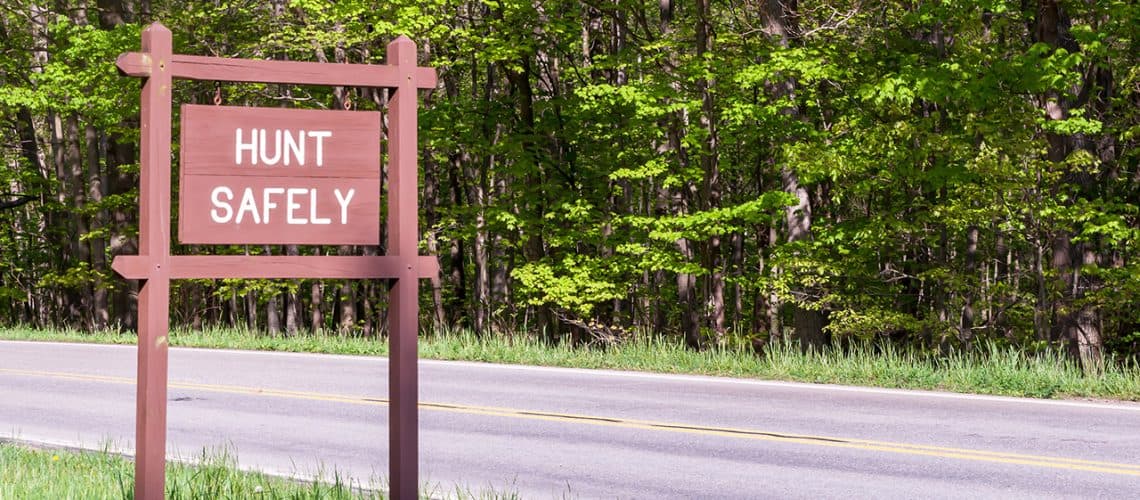
Hunting can be dangerous. Seems like an obvious statement to make. But experienced hunters know that being prepared and willing to learn can help you avoid a dangerous situation. Following guidelines and safety procedures will ensure your hunt goes well.
At Birdtail Waterfowl, safety is our top priority. We take care to follow all policies and use our best judgement, and we guide new hunters to do so as well. When you hunt, there are precautions you need to take to keep you and everyone else safe. Here are some to keep in mind:
Be aware of your surroundings
To hunt, you must be profoundly aware and attuned to what is happening around you. Properly identifying your target, shooting with caution, and having a general sense of what’s around you are all key components of hunting safely. It’s vital that you stay alert, not just so you can have a good hunt but also so you and those around you stay as safe as possible.
Ensure you know what terrain you are heading into and stay alert to signs of trouble. If you hunt on a guided tour, listen to the instructions of our highly skilled guides, who know the surrounding areas like the back of their hands.
Treat every gun like it's loaded
Always know that guns can’t be treated like toys. Even if a gun isn’t loaded, you should treat it like it is. Guns are safer than ever these days with enhanced features, so it’s unlikely an accident will occur. However, treating a gun like it’s loaded even when it’s not is the best practice to follow to avoid tragic mistakes.
Feel good on the day of the hunt
When you’re feeling unwell or groggy, hunting can become more dangerous. Did you know it’s more common for hunters to get hurt falling than it is for them to get hurt by a gun? Hunting is incredibly physically demanding. You must use all your senses in order to hunt. It also requires trekking through rough terrain and sometimes battling unpleasant weather.
When you hunt, it’s essential that you wear sensible clothing and footwear. You also need to have some serious sustenance. This means a big breakfast and food for the road. Thankfully, our guided tours come with plenty of snacks and meals. Staying full won’t be hard with our premium chef and food service.
Wear hearing and eye protection
There are lots of potential hazards when you’re hunting. And two of your most sensitive features – your eyes and ears – could become permanently damaged if you aren’t careful.
Shooting is loud, and continuous close-range shooting can cause irreversible hearing damage. Wearing ear plugs or a headset will save you from a lifetime of hearing problems.
It’s also important to wear goggles explicitly designed for hunting. Pellets and shells can both cause permanent blindness if they wind up in your eyes. The good news is that some goggles can help you see in poorer conditions or low light, improving your hunting ability.
But what if your targets fly?
These are some general hunting tips, but what about safety tips specific to waterfowling? Birds inherently add a deeper level of complexity to your hunt. Not only are you shooting skittish, flying targets, but birds are known to carry disease and have even been responsible for pandemics.
So what precautions should you take when hunting birds?
When hunting the birds, always listen to the instructions of your guides and stay in your shooting lanes. If you’re on a boat, never shoot from it when it’s moving or when it isn’t attached to anything secure.
Don’t eat birds that look unwell or were acting strange before you shot them. This is an indication that the bird may be sick. You should also avoid direct contact with blood, entrails, and feces. The Government of Canada recommends you wear gloves pretty much anytime you are handling game birds.
Poultry is a famously temperamental food. You must handle it with the utmost care. When you’re hunting on your own, this means bringing a cooler with lots of ice and sharp tools to clean the birds. Your birds need to be stored in a secure, cold environment.
Keeping birds in a safe condition for consumption can be tricky. Thankfully, our guided hunts all have everything you need to get your birds home safely. You can even have your birds cleaned and prepared at our lodges so you don’t have to deal with the mess at home.
Hunting is only dangerous if you go in unprepared. If you don’t have a lot of hunting experience or haven’t hunted recently, it’s a good idea to brush up on safety protocols.
A guided tour with all the bells and whistles is a great option to enjoy a safe hunt without the extra stress that comes with planning and executing the hunting day yourself. Book yours now with Birdtail Waterfowl.

